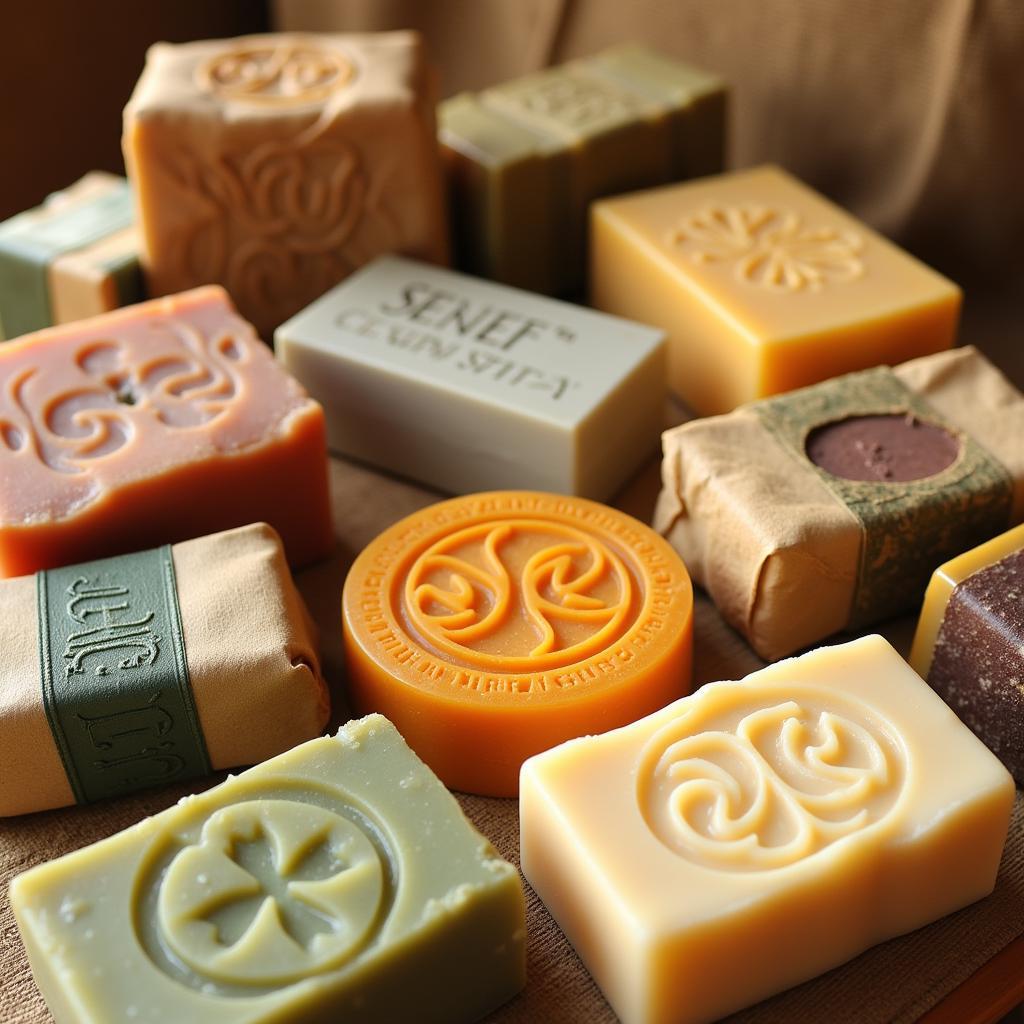Exploring the Vibrant World of African Koke
African Koke, a term often shrouded in mystery, refers to a unique and flavorful black soap originating from West Africa. This traditional soap, made from the ashes of roasted plant materials, has been used for centuries for both cosmetic and medicinal purposes.
Unveiling the Secrets of African Koke: Ingredients and Production
The magic of African koke lies in its simple yet powerful ingredients. Crafted from a blend of natural components, it typically includes:
- Plant Ashes: The foundation of African koke, these ashes come from locally sourced plants like plantain peels, cocoa pods, and palm leaves. Each ingredient imparts unique properties to the soap.
- Water: Water plays a crucial role in transforming the ashes into a paste-like consistency.
- Oils: Palm oil, shea butter, or coconut oil are often added to enhance the soap’s moisturizing and lathering properties.
The production process is a testament to generations of traditional knowledge.
- Harvesting and Drying: Carefully selected plant materials are sun-dried to reduce moisture content.
- Roasting: The dried ingredients are roasted in a controlled environment until they turn into ash. This process can take several hours and significantly impacts the soap’s final color and texture.
- Ash Preparation: The roasted ashes are sifted and mixed with water to create a thick paste.
- Curing: This paste undergoes a curing process, often lasting for weeks, allowing the lye to develop naturally.
- Oil Infusion: Oils and butters are incorporated into the cured paste to enrich its texture and add nourishing properties.
- Shaping and Drying: The final mixture is hand-molded into desired shapes and left to dry.
The Multifaceted Benefits of African Koke
Beyond its cleansing properties, African koke boasts a remarkable range of benefits, making it a cherished beauty secret for generations.
Skin Health and Radiance:
- Deep Cleansing: Its natural exfoliating properties gently remove dead skin cells, revealing a brighter complexion.
- Acne Control: African koke’s antibacterial qualities can help control acne breakouts and reduce excess oil production.
- Eczema and Psoriasis Relief: The soap’s soothing properties can alleviate symptoms of skin conditions like eczema and psoriasis.
Hair Care and Nourishment:
- Hair Growth Stimulation: Regular use of African koke can promote hair growth due to its high content of natural nutrients.
- Dandruff Control: Its antifungal properties help combat dandruff and soothe an itchy scalp.
- Enhanced Hair Texture: African koke can enhance hair texture, leaving it softer, smoother, and more manageable.
“As a dermatologist, I often recommend African koke to patients seeking natural solutions for their skin and hair concerns,” shares Dr. Abena Osei, a leading dermatologist in Ghana. “Its gentle yet effective properties make it suitable for even the most sensitive skin types.”
Choosing and Using African Koke
When choosing African koke, opt for authentic, unrefined versions free from artificial fragrances and colors. The color of the soap can vary from black to brown depending on the ingredients used.
- For Face and Body: Gently lather the soap in your hands and apply it to wet skin. Massage gently in circular motions before rinsing thoroughly.
- For Hair: Create a lather with the soap and apply it to wet hair. Massage onto the scalp and work it through the length of your hair. Leave it on for a few minutes before rinsing.
While African koke is generally safe for most skin types, it’s always advisable to do a patch test on a small area of skin before using it on larger areas.
 Different Types of African Koke
Different Types of African Koke
Conclusion
African koke, with its rich history and remarkable benefits, offers a unique approach to skincare and haircare. This traditional soap, deeply rooted in West African culture, continues to captivate individuals worldwide seeking natural and effective solutions for their beauty needs. Embrace the power of African koke and experience its transformative benefits for yourself.
FAQs about African Koke:
1. Is African koke suitable for all skin types?
While generally safe, it’s always best to do a patch test before using it on larger areas, especially if you have sensitive skin.
2. How often can I use African koke?
You can use it daily or a few times a week depending on your skin’s needs and your personal preference.
3. Where can I purchase authentic African koke?
Look for reputable online sellers or visit African specialty stores to find authentic African koke.
4. Does African koke lighten skin?
No, African koke does not bleach or lighten skin. It helps exfoliate and brighten the skin, revealing your natural complexion.
5. Can I use African koke on my child’s hair?
Yes, African koke can be gentle enough for children’s hair. However, always choose unscented varieties and consult with a pediatrician if you have any concerns.
Need help with African Koke or other African products?
Contact us!
Phone Number: +255768904061
Email: kaka.mag@gmail.com
Or visit us at: Mbarali DC Mawindi, Kangaga, Tanzania.
Our customer service team is available 24/7.


